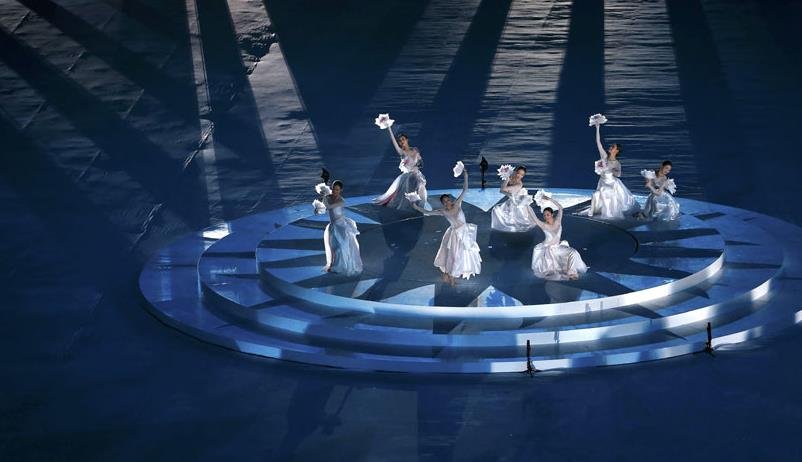The 19th edition of the Asian Games, the largest multi-sport event in Asia, kicked off on September 23 in Hangzhou, China, with a dazzling opening ceremony. The event, which was postponed from 2022 due to the COVID-19 pandemic, will feature 56 sports and 481 gold medals. More than 10,000 athletes from 45 countries and regions are expected to participate in the games, which will run until October 8.
China dominates the first day of competition
As the host nation, China wasted no time in asserting its dominance in the first day of competition, winning 11 gold medals out of 18 events. China swept all four gold medals in shooting, three in swimming, two in artistic gymnastics, and one each in weightlifting and wushu. Hong Kong was the only other country to win a gold medal on the first day, thanks to cyclist Lee Wai Sze’s victory in the women’s sprint.

India was the second most successful country on the first day, with three silver and two bronze medals. India’s silver medals came from weightlifter Mirabai Chanu (women’s 49kg), shooter Saurabh Chaudhary (men’s 10m air pistol), and swimmer Srihari Nataraj (men’s 100m backstroke). The bronze medals were won by shooter Manu Bhaker (women’s 10m air pistol) and swimmer Maana Patel (women’s 100m backstroke).
Uzbekistan was third in the medal table with three silver and one bronze medal, followed by Japan with two silver medals. Indonesia had the most bronze medals with three, followed by Iran, Macau, Mongolia, Thailand and Vietnam with one each.
Highlights of the opening ceremony
The opening ceremony of the Asian Games 2023 was a spectacular show of culture, technology and creativity. The theme of the ceremony was “Harmonious Asia”, reflecting the spirit of unity and diversity among the Asian countries. The ceremony featured performances by famous singers, dancers and actors from China and other Asian countries, as well as stunning displays of fireworks, drones and projections.
The ceremony began with a countdown video that showcased Hangzhou’s history, culture and achievements. The video was followed by a performance of “The Song of Everlasting Sorrow”, a famous poem that tells the tragic love story of Emperor Xuanzong and his concubine Yang Guifei during the Tang Dynasty. The performance featured renowned actress Fan Bingbing as Yang Guifei and singer Wang Leehom as Emperor Xuanzong.
The next segment was “The Dream of Hangzhou”, which depicted the city’s modern development and innovation. The segment featured a live demonstration of a maglev train, a high-speed rail that uses magnetic levitation to move without contact with the ground. The train reached a speed of 600 km/h on a specially built track inside the stadium. The segment also showcased Hangzhou’s achievements in artificial intelligence, e-commerce and digital economy.
The third segment was “The Harmony of Asia”, which celebrated the diversity and richness of Asian cultures. The segment featured performances by artists from different countries and regions, such as India, Japan, Korea, Indonesia, Thailand, Kazakhstan and Hong Kong. The performances included traditional dances, songs and musical instruments, as well as modern pop music and hip-hop.
The final segment was “The Glory of Asia”, which honored the athletes and their spirit of excellence. The segment featured the parade of nations, where each country’s delegation entered the stadium led by their flag-bearer. The segment also featured speeches by officials from the Olympic Council of Asia (OCA), the Hangzhou Asian Games Organizing Committee (HAGOC) and the Chinese government. The highlight of the segment was the lighting of the cauldron by Chinese swimmer Sun Yang, who is a three-time Olympic champion and a nine-time Asian Games champion.
What to expect in the next days
The Asian Games 2023 will continue until October 8, with more than 400 events across 56 sports. Some of the sports that will make their debut or return to the games are breakdancing, esports, cricket, bridge, chess, weiqi (go) and xiangqi (Chinese chess). Some of the sports that will not be featured in this edition are cricket (except for T20 format), kabaddi, bowling and cue sports.
Some of the athletes to watch out for in the games are Chinese sprinter Su Bingtian, who broke the Asian record in the men’s 100m at the Tokyo Olympics; Japanese tennis star Naomi Osaka, who won four Grand Slam titles; Indian badminton player PV Sindhu, who became the first Indian woman to win two Olympic medals; Iranian wrestler Hassan Yazdani, who is a two-time Olympic champion; and Indonesian badminton duo Marcus Fernaldi Gideon and Kevin Sanjaya Sukamuljo, who are the world number one in men’s doubles.
The Asian Games 2023 will also be a test event for the Beijing 2022 Winter Olympics, which will be held in February next year. The games will showcase China’s ability to host major sporting events amid the COVID-19 pandemic, as well as its sports development and infrastructure. The games will also be an opportunity for the Asian countries to strengthen their friendship and cooperation, as well as to promote peace and harmony in the region.
